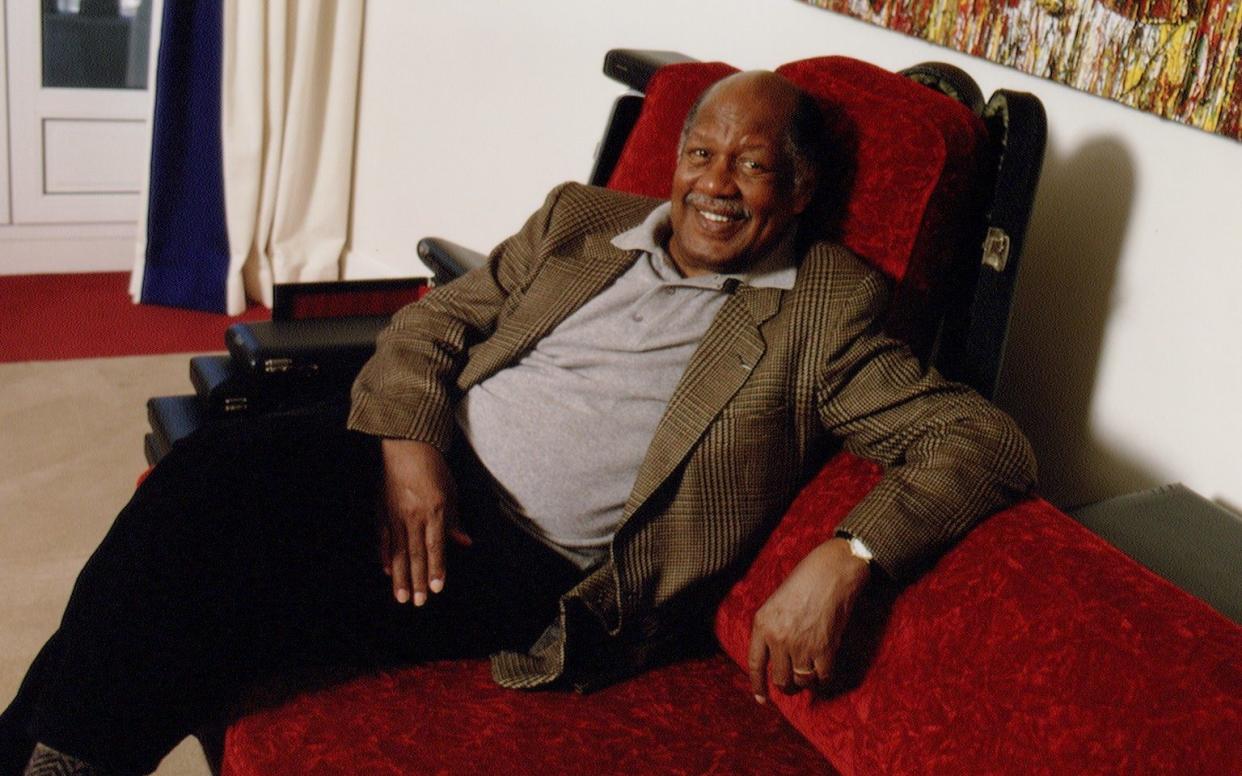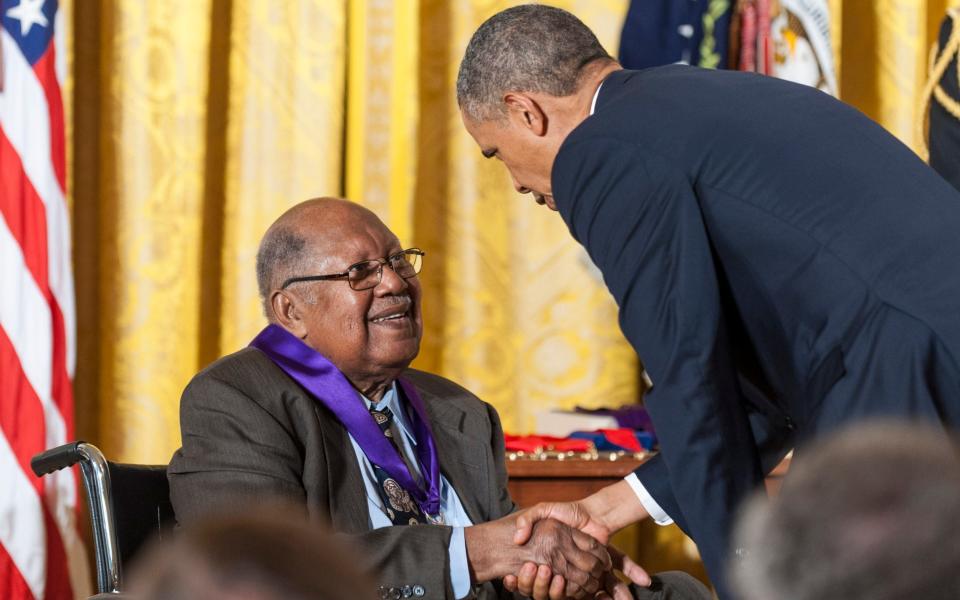Why Ernest J Gaines is literature’s best-kept secret

This year saw the 90th anniversary of the birth of one of America’s most celebrated, widely read and arguably greatest novelists – as well as the 40th and 30th anniversaries respectively of the publication of his two most famous novels, A Gathering of Old Men (1983) and A Lesson Before Dying (1993), which beautifully articulate the racial zeitgeist of the time and pack a powerful moral punch which still resonates today.
Yet despite his undoubted place in the American literary canon, and despite winning a host of major awards, Ernest J Gaines (1933-2019) is virtually unknown here in the UK, let alone read or studied.
The Louisiana Creole experience he so vividly, lyrically and majestically portrayed – of rural, impoverished, Southern black American life in the mid-late 20th century – is not only increasingly far from the cultural mainstream, but often erroneously regarded as unrepresentative of the majority black American experience.
Gaines’s life, as well as his art, is remarkable. Born on the plantation in rural Louisiana on which his forebears had toiled as slaves and sharecroppers, Gaines grew up in gnawing poverty, the eldest of 12 children, and was raised by his disabled great-aunt, but moved to California in 1948 aged 15 to join his mother and stepfather. After two years of army service, during which he first began to write, he attended San Francisco State University, then won a Creative Writing Fellowship to Stanford.
Having published his first novel (Catherine Carmier) in 1964, he taught for many years as Writer-in-Residence at the University of Louisiana in Lafayette, before retiring in 2004 and publishing his last novel, The Tragedy of Brady Sims in 2017. He died of a heart attack aged 86 in November 2019.

Gaines’s fiction is almost exclusively set in an agrarian, racially segregated Louisiana, a society still profoundly impacted by slavery and its post-emancipation aftermath, and against the backdrop of the incessant hum of crickets, the enervating Southern heat and the ubiquitous cotton plants. Yet the deceptively bucolic setting – of mangrove swamps and bayous, gumbo, jambalaya and Zydeco music – is certainly no Arcadia. It is a place where whites, Cajuns, Creoles and African-Americans co-exist with mutual suspicion, baleful animosity and often visceral hatred.
Gaines’s literary greatness – and why he still matters today – lies in the fact that his fiction gives a much needed voice to the “black everyman”, unashamedly celebrating the quotidian plight, not to mention hopes and frangible dreams, of often overlooked working-class black men and women. In his books, microcosm meets macrocosm and specific meets universal. As Ishmael Reed, the poet, novelist and doyen of African-American letters, famously said of Gaines, “No one writes about ordinary, mainstream black life as well as he does.”
As a stylist, Gaines is a consummate craftsman, one whose delicately and felicitously phrased prose captures with precision, brio and grace the cadences of black, Southern, working-class speech. He also possesses a penchant for dramatic plots, as well as for delineating strong male and female characters, writing with compassion, humour and an abundance of humanity.
The modern African-American experience has been richly chronicled, but in recent decades its focus has been overwhelmingly metropolitan. Even in states like Louisiana and Mississippi, where significant proportions of the country’s black population live in rural areas, their narratives are rarely discussed; witness the fact that the reductive shorthand for much modern black music is simply ‘urban’.
Gaines’s breakthrough novel, The Autobiography of Miss Jane Pittman (1971), narrated by a 110 year-old former slave, is part of a tradition of literature about rural black America stretching back to Harlem Renaissance luminary Zora Neale Hurston’s Their Eyes Were Watching God (1937) and forward to the award-winning, New Orleans-based Jesmyn Ward’s Sing, Unburied, Sing (2017). Ward herself is today the most prominent and successful of Gaines’s artistic heirs.

His novels also powerfully articulate the importance of Creole culture and identity in Louisiana, in all its historical and linguistic complexity. Gaines’s ardent commitment to veracity in depicting the full gamut of Creole life shines through. Take A Gathering of Old Men (1983), about the heart-warming solidarity which unites a group of old black field hands when a white Cajun farmer is killed, with its shifting narratorial perspective and genuinely startling dénouement.
Then there is A Lesson Before Dying (1993), set in the 1940s, about Grant Wiggins, a black plantation school teacher attempting to impart wisdom, enlightenment and dignity to Jefferson, a young black man awaiting execution for a liquor store murder he witnessed but did not commit.
These novels are harrowing, certainly, often tragic and doleful, yet Gaines’s prose – in its ability to capture people’s fortitude and forbearance, their pugnacious assertion of agency in the face of existential threat – is ultimately uplifting.
Despite the efforts of the Ernest J Gaines Center at the University of Louisiana (whose mission is to celebrate and promote the writer’s life and work), we still need to proselytise Gaines’s genius on this side of the pond. His novels’ clear-eyed portrayal of the rural African-American experience, with all its innumerable hardships, indignities and vicissitudes, can introduce the British reader to a hitherto neglected lens through which to view Black America.
For anyone unfamiliar with Gaines’s work, I would urge them to start with A Gathering of Old Men, one of three of his novels to be turned into films. Similar in spirit to Camus’ The Plague (1947), it extols the power of collective action, depicting defiance and self-sacrifice in the face of racial injustice. In a life-affirming and emotionally nuanced take on what it means to be black on the bayou, Gaines’s marginalised protagonists heroically strive to reclaim their traduced self-worth by helping each other. As such, it is wholly representative of the overarching themes and preoccupations of his entire literary career.

 Yahoo Movies
Yahoo Movies 
